A Brief History of 1917: Russias Year of Revolution
Roy Bainton
A Brief History of the Anglo-Saxons
Geoffrey Hindley
A Brief History of the Birth of the Nazis
Nigel Jones
A Brief History of the Boxer Rebellion
Dianna Preston
A Brief History of British Kings & Queens
Mike Ashley
A Brief History of British Sea Power
David Howarth
A Brief History of the Celts
Peter Berresford Ellis
A Brief History of Christianity
Bamber Gascoigne
A Brief History of the Circumnavigators
Derek Wilson
A Brief History of the Cold War
John Hughes-Wilson
A Brief History of the Crusades
Geoffrey Hindley
A Brief History of the Druids
Peter Berresford Ellis
A Brief History of the Dynasties of China
Bamber Gascoigne
A Brief History of Fighting Ships
David Davies
A Brief History of Globalization
Alex MacGillivray
A Brief History of the Great Moghuls
Bamber Gascoigne
A Brief History of the Hundred Years War
Desmond Seward
A Brief History of Infinity
Brian Clegg
A Brief History of Medicine
Paul Strathan
A Brief History of Misogny
Jack Holland
A Brief History of Mutiny
Richard Woodman
A Brief History of Napoleon in Russia
Alan Palmer
A Brief History of Painting
Roy Bolton
A Brief History of the Flying Corps in World War I
Ralph Barker
A Brief History of Science
Thomas Crump
A Brief History of the Tudor Age
Jasper Ridley
A Brief History of Vikings
Jonathan Clements

To Mary Hesketh & to Georgia de Chamberet
Constable & Robinson Ltd
3 The Lanchesters
162 Fulham Palace Road
London W6 9ER
www.constablerobinson.com
First published in the UK by Quartet Books Limited 1994
This edition published by Robinson, an imprint of Constable & Robinson, 2008
Copyright Anthony Blond 1994
The right of Anthony Blond to be identified as the author of this work has been asserted by him in accordance with the Copyright, Designs & Patents Act 1988.
All rights reserved. This book is sold subject to the condition that it shall not, by way of trade or otherwise, be lent, re-sold, hired out or otherwise circulated in any form of binding or cover other than that in which it is published and without a similar condition including this condition being imposed on the subsequent purchaser.
A copy of the British Library Cataloguing in Publication Data is available from the British Library
ISBN: 978-1-84529-719-0
eISBN: 978-1-47210-362-8
Printed and bound in the EU
1 3 5 7 9 10 8 6 4 2

ACKNOWLEDGMENTS

To my wife, Laura, for her chapter on Roman food, to Auberon Waugh, editor of The Literary Review, who let me write notices of these Emperors biographies, and to James Fergusson, who suggested they be written up into a book; to Lord Bridges, who introduced me to the British School in Rome and to the kindness and hospitality of the Director and the Deputy Director of that admirable institution; also to the archive department of the British Film Institute.

BIBLIOGRAPHY

There isnt one. Publications are acknowledged in the text. I have used the Ancient Roman historians and am indebted to Penguin, not only for the relevant Penguin Classics but also for Whos Who in the Ancient World by Betty Radice, which Anthony Blond published in hardback in 1971. The glossaries in the historical novels of Colleen McCullough, The First Man in Rome, etc. (Century), are superb works of clarity and scholarship. Rome in Africa by Susan Raven, now in its third edition with Routledge, has become a classic, and the Falco novels of Lindsey Davis (Century) are a delightful way of slipping painlessly into the mores of Ancient Rome.

APOLOGY

There is nothing original in this book. Even my view that the Emperor Caligula was not mad, just very bad and very dangerous to know, is allowed by his latest biographer.
The unexpected behaviour of the famous and infamous in Ancient Rome, which I may have pointed up in these pages, came from mostly standard sources; what I hope has been fresh is the approach. Cicero revealed himself as a Rachmanlike slum landlord in a letter to his friend Atticus. The loan of money at 48 per cent by Brutus, the noblest Roman of them all, is a matter of Senatorial record. Julius Caesars disdainful preoccupation with his despatch box at the Games was witnessed by thousands and recorded by a few. The picture of his great-nephew, Augustus, friendless and bored in his old age, watching small boys playing dice in his little house on the Palatine Hill, hoping his wife has found him a virgin for the afternoon, is my emphasis but not my invention; indeed Ancient Rome was so literate, so lively and so malicious that the amateur historian has no need to invent anything, unlike, say, the mediaevalist. (My favourite anecdote has a very modern ring. One of Neros aunts was very mean. She let it be known that she did not appreciate as New Yorkers say one young man around town saying she sold old shoes. He sent back a message. Tell her I didnt say she sold them; I said she bought them!)
Tiberius, Augustus stepson and son-in-law, was the next Emperor and essentially the most scrupulous and conscientious of the bunch, and the misanthropy which soured him only came from his bitterness at being forced (by Augustus) to abandon the only human being he loved his wife. (Augustus, by the way, was certainly not poisoned by his wife, Livia, as seen on television. They had lived together for forty years and did not particularly like each other, but she had no reason to murder him, like two other Empresses, the succession of her son, Tiberius, being secure.)
Hating Rome, and indeed all mankind, Tiberius took his revenge by bequeathing as Emperor the serpent (his word) Caligula, his great-nephew, who, inevitably assassinated, was succeeded, illegally, by his uncle Claudius, not the dithering benevolent figure of recent impersonations but the most cunning and ruthless of the Julio-Claudian clan. Poisoned by a dish of his favourite mushrooms, and finished off by his doctor, Claudius was succeeded by his seventeen-year-old nephew, a golden boy who did not breathe freely until he had murdered his mother.
(An explanation for their appalling conduct must be that these characters, with the exception of the first two, Caesar and Augustus, who had loving parents, endured such traumatic childhoods as would make a social worker of today vow to get them off any charge.)
The first five years of Neros fourteen-year reign were notably benign, guided by Seneca, hero of Classics masters down the ages, whose enforcement of his usury provoked the bloody rebellion of Boadicea, Queen of the Iceni and Commander-in-Chief of the English, who appealed to the Emperor Nero. (This lady was coeval with St Paul, so, with Seneca as link, they would all have known about each other.) Nero, historically unpopular for trying to eliminate an unappealing sect of Jews, not yet known as Christians, was the most charming of these Emperors, the most visionary and the only aesthete. He was of course cruel Romans were but this twentieth century, with Auschwitz as its visiting card, has no right to point a finger at the first. Nero tried to abolish the Games, and his proposal that he stop a war by appearing before the army of the enemy and bursting into tears should be an idea considered for contemporary heads of state by the United Nations.

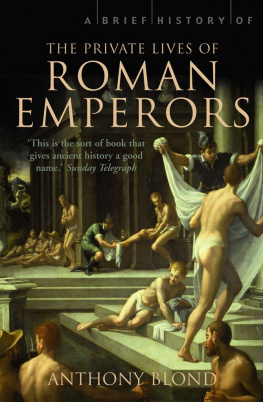
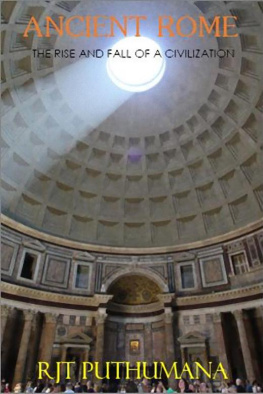
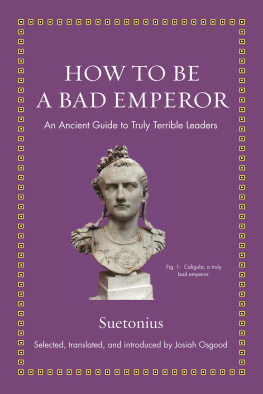
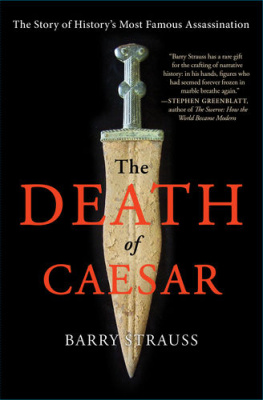


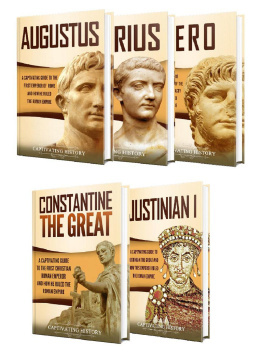
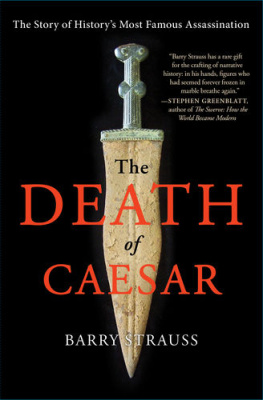
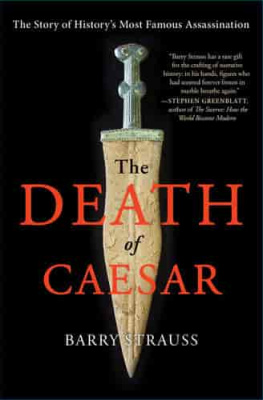
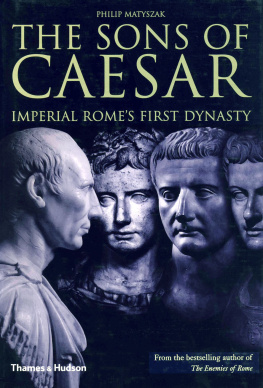
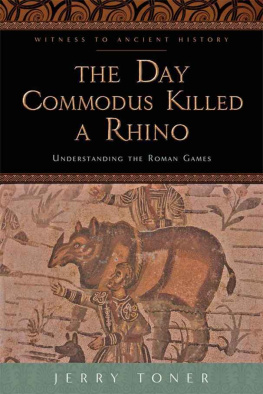

 ACKNOWLEDGMENTS
ACKNOWLEDGMENTS 